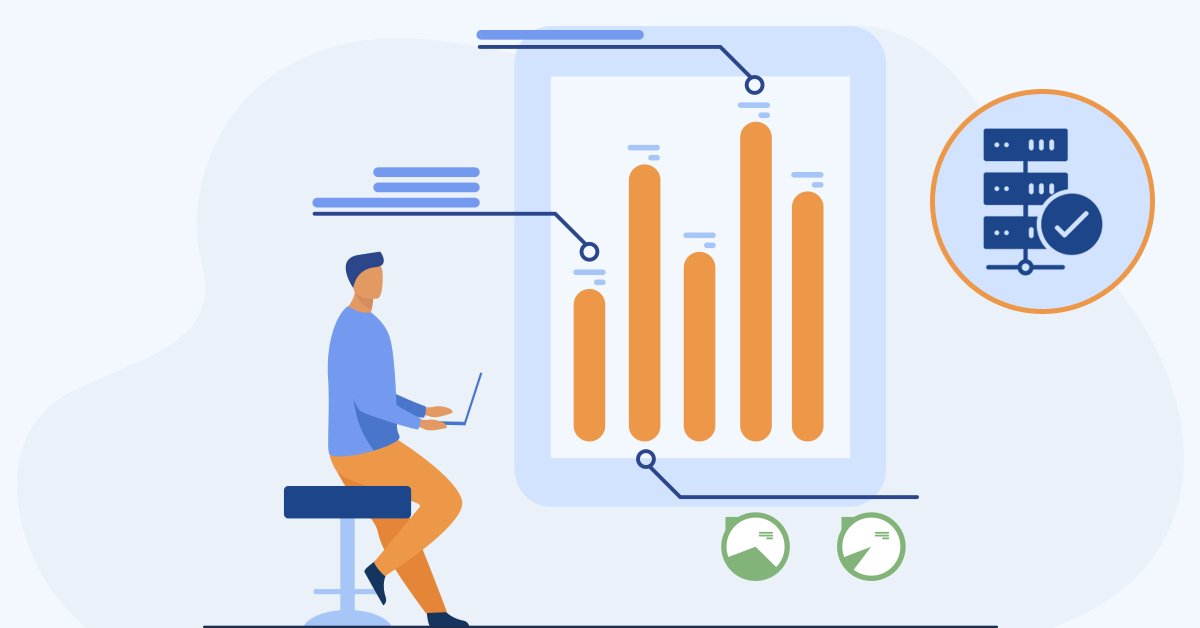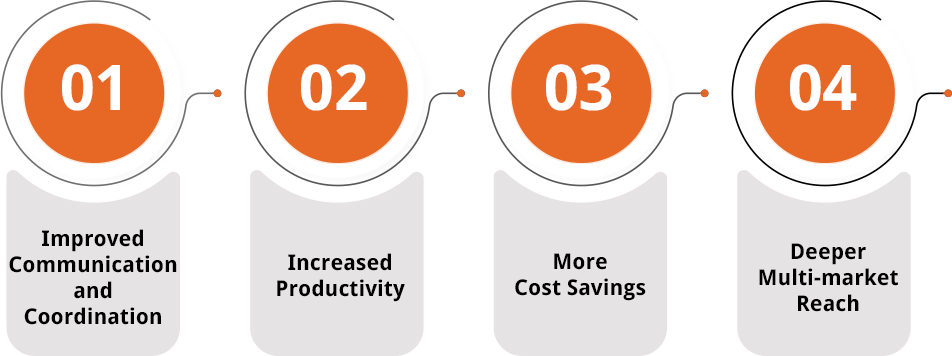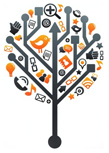
Customers flock to brands that add value to their lives. The greater that value, the greater the customer engagement. And the way to a customer’s mind is through the market research data that you gain about them.
Growth in the number of customers brings more diversity and complexity to the company’s database. It also introduces data errors (that only 3% of companies correct to improve quality), most notable being variations in the data’s format. Data standardization corrects this format issue by introducing data uniformity.
Companies have to often deal with multiple data sources adding raw data of all formats simultaneously. The scale and speed of the operation can make it hard to discern the true value of the incoming data.
Yet, it is this data that determines the future of the company, helping to chart its course (2025 investment figures in Big Data are expected to reach USD 123.23 Billion) by providing an in-depth look at the target audience. The comprehensibility required to accomplish this awareness will be compromised if the data is not of the desired standard. This standard is usually determined by the business’s requirements and local regulations.
A data standardization services provider will be acutely aware of these standards. They will mold the raw, haphazardly formatted data into a structured collection that’s easily discernible by the applicable personnel.
The accurate, structured, and intelligible qualities of such a database make it an actionable asset. It then brings value to the company’s operations, brand name, and customers. Data standardization comes under the broader purview of data scrubbing services that help clean data of all error types.
Drive more growth with less data ambiguity.
The Common Data Types That Require Data Standardization
The industry your business operates in determines the type of customer data you will process. Data standardization experts work on enterprise data by broadly classifying it into B2C and B2B categories. They each have exclusive data types along with a few common ones. The standards and techniques used for the process change accordingly.
Below are the data types that are ripe for standardization:
1. Name Data
Name data is one of the fundamental data types that a business can contain. The complexity associated with name data is the variety of conventions that different cultures follow. Aliases also add to the difficulty in getting standard data from a source. Initials may occur at the beginning, middle, or end, increasing confusion.
Data standardization professionals may need to develop more than one standard to cater to the variations. And these standards are aligned with the naming conventions of the target market to keep ambiguity low.
2. Financial Data
Account-based marketing is the standard today, generating quality leads and increasing ROI. But it is not possible without an idea about the target’s financial capabilities. Since one can’t directly get information about a person’s financial status, financial data must be gleaned indirectly. And that’s not conducive to standardized data input.
For instance, financial data can be gained from the spending habits of the person on various eCommerce portals. However, these portals may follow different standards for such data individually. A data standardization service provider will replace those with the one you have for your usage.
3. Address Data
Want to send leaflets, product samples, and other marketing material to your prospects? Or even an email enticing them to visit your website or some other page? Then you should have their address intact with no errors, including their email ID. But there are innumerable ways this data type gets stored wrong (unverified human data entry, for example, can have an error rate as high as 4%).
A digit gone missing from the door or street number of a prospect in the available address means a missed opportunity. Same with a digit or more getting swapped, or being completely false. Something similar may happen with names and other words used in the house/company/email address.
Outsourcing data standardization to tackle this challenge is, therefore, a necessity. The regulations and conditions vary too much for this type of data for its standardization to be done by a limited team.
4. Phone Number and Social Media Data
There is no escaping the influence of personal mobile telephony and social media on marketing. And there’s also no escaping the multitude of errors that can creep into the associated data. Missing or incorrect digits being present in phone numbers is one problem, with the other big one being the difference in number formats across service types and countries.
Social media data is also full of such issues, with the lack of a standard across the different ones used. Data standardization experts have to contend with social media addresses of customers and clients being mislabeled and out of standard used for a site. Posts may not have content with proper grammar and naming conventions. Images may not be of the correct size or quality to get the required information from them.
And when these two important data types are not coordinated, like a phone number getting mixed with someone else’s social media data, there will be outreach issues. Only well-planned and executed data standardization services can prevent such debacles from occurring.
5. Product Data
Inter-departmental coordination is vital for the product development pipeline to function smoothly. This coordination is possible only with each department understanding its role and the work done by another flawlessly. But sometimes that won’t be the case. Data transfer between the two or more teams may not happen unambiguously due to the lack of standardized data.
Customers providing feedback on the product after use tends to be subjective. The various bits of information about the product’s functionalities as mentioned by the user have to be structured in a comprehensible way. Data standardization, thus, becomes a must here as it helps make such data objective in nature.
6. Business Data
A business is a minefield of data that keeps varying by the minute. There are performance-related pieces of it, along with strategy-related ones. Then there is the personnel-related data, along with the multitude of data types associated with them. Projections about their future performance and financial status are another set of useful data to have about a client’s business.
There’s also the internal data of your company. Depending on the scale and number of functions, you’ll have to deal with data heaps that may not be compatible with one another in contrast to expectations. Data standardization services providers are a must-have to get your every business data type in order so that it can be processed further without ambiguity.
The Benefits Of Using Data Standardization Services
An enterprise’s database, once standardized, takes a big step toward becoming its greatest asset. There are numerous benefits to be gained from the well-structured data, affecting all aspects of the business.
Here are some of the benefits you can get from opting to standardize your data:

1. Improved Communication and Coordination
Communication is key to maintaining a strong relationship between your company and your customers. It also helps with the seamless coordination between the various parts of your company. Having easily comprehensible data helps in both these cases. Data standardization delivers such data for all such use cases.
2. Increased Productivity
When your business runs on many software tools that automate tasks, it helps to have data they all can understand. Such software may be cutting edge but they still need data in formats that work for them. In other words, their input data needs to be standardized. Likewise with human resources working on projects.
Clear, crisp data that fits their needs will help get the work done without hiccups. The pipeline gets unclogged and pushes more output in less time, pushing up efficiency.
3. More Cost Savings
Running multiple operations simultaneously can be an expensive affair. Not to mention the chances of losses due to the lack of proper oversight and inefficiencies. Data standardization professionals can plug this leak of funds without gaps.
The increase in efficiency combined with accurate internal financial data helps coordinate the flow of money better. This in turn helps save costs, along with the improved planning that comes with better data.
4. Deeper Multi-market Reach
What works in one market may not work elsewhere. Your business will need to adapt to the circumstances of each market it operates in accordingly. That means using the standards that prevail in those markets. Only then will you be able to crack those markets and establish your brand with deep market penetration.
Outsourcing data standardization helps with this venture immensely. You’ll have experts who know the nuances and standards of individual markets working on your data. You needn’t worry about incompatible standards affecting your ROI and brand value at all.
Many more benefits like quick time to market, improved data security and privacy, data management, etc. are also gained as a consequence of the above-mentioned benefits.
In Conclusion
The emphasis on having accurate data to run a business cannot be overstated today. That accuracy can only be achieved with the right set of data management processes, with Data Standardization playing a major role. Standardized data lets you set new standards of operations that will drive growth, efficiency, and strong customer/supplier/vendor relationships. Thus, your brand value will go up as well as your ROI.
Outsource Data Standardization Services To SunTec India
SunTec India is an industry leader in the field of data management services outsourcing. We are ISO certified for service quality and information security, so you can rest assured that your data is in good hands. We will standardize your data to your custom standard and do so within deadlines.
Outsourcing data standardization to us means getting the better of your competitors with enhanced scenario forecasting and quicker decision making. And you also save on your budget at the same time. Our standardization services will let you set high standards for your business and help achieve them.
Frequently Asked Questions
1. What’s the difference between Data standardization and data cleansing?
Data cleansing is the process of removing various types of data errors. Thus, data standardization can be considered to be a part of data cleansing. The difference is that cleansing includes the correction of more than just data standard issues like mislabeling, broken data, excess/irrelevant data, etc. Data cleansing is performed before standardization unless required otherwise.
2. What’s the difference between Data Standardization and Data Normalization?
While data standardization restricted the data according to a required standard, data normalization restructured it according to possible relations between sets of data. It becomes easier to identify and establish relationships between Data sets once that data is standardized. In some cases though, preliminary normalization may be conducted to map different data sets requiring reformatting to a particular standard.
3. Is Data validation necessary for Data Standardization services?
Data validation is the process used to identify and pinpoint data inconsistencies and inaccuracies for a given data management process. Validation can also be done on an entire database to deem it necessary or not for a set of processes to be performed on it. Thus, data validation can be considered a precursor to data standardization. It’s through validation that the lack of standardized data is noted and the standardization process initiated. Validation may sometimes be required for post-standardization operations when data compatibility for them is in doubt.
4. What standardization must be applied to image data?
Images are present in various aspects of marketing, and each has its set of applicable standards. Selecting a file format for a particular process and converting all images to that standard may be necessary at times. Images may need to be cropped to a particular standard for some applications, such as with important documents. An image’s tone, color spectrum, background, light exposure, etc., may also have to be made compliant with a set standard as per requirements.

